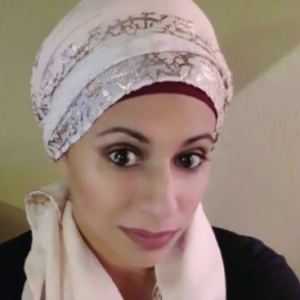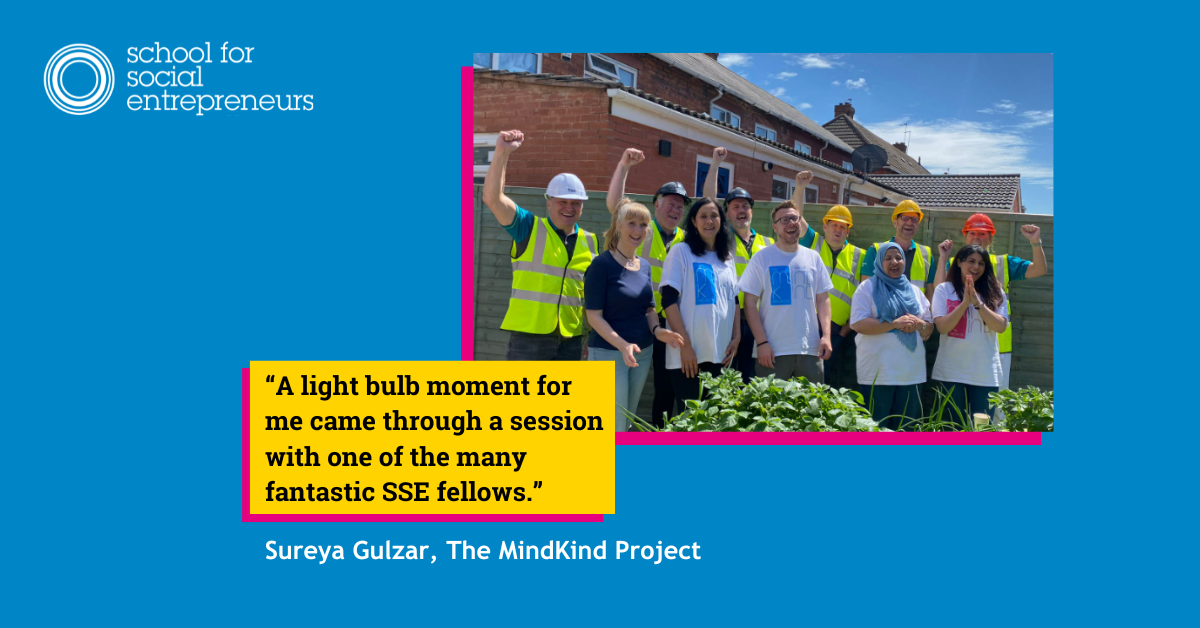Community Assets; People and Places
10 Jul 2024
Written by Sureya Gulzar, Chief Executive Officer of The MindKind Project.
The accepted definition of a community asset is “a building or piece of land that is used to further the social wellbeing or interests of the local community”. Examples include community centres, village shops, youth centres etc.
As I began to look at community assets and community ownership for a disused youth centre in my area it struck me that there was a huge gap in information and guidance on how to bring community assets back into use. The sustainability of a community asset isn’t just about reopening the building or securing a lease; the viability, long term use and ownership all needs to be considered at the outset.
| If you’re looking for support for your community business, check out our new programme Trading for Good Community Business. |
Community champions make the best assets
A year into founding The MindKind Projects CIC COVID hit, I joined our local COVID planning meeting where I met a local councillor who was passionate about what is now the MindKind Wellbeing Centre. Knowing digital poverty is huge in this area I knew without local support this much needed Community hub would never be bought back into use.
The question I asked myself as I began to think about how I could help was “who are our local assets?” Local leaders, social activists, interested people, civil servants, health colleagues, families, young people all the countless individuals who could help in some way.
I started with a stakeholder map with myself as the first stakeholder, I was a community member and businessperson, a human asset to the area who would be one the many changemakers to bring the building back into use for local people to use to increase their wellbeing. It takes a village as the saying goes and when we think of community assets, we often forget it is the people who make up the local community who ultimately act as stewards of any building or piece of land for public benefit.
At the MindKind Projects our early understanding of our role to act as stewards for the community centre has been critical to the sustainability and shared use of the wellbeing centre and future viability of the physical asset remaining open for public use. Within 12 months we were able to galvanise the support of local people and partners to bring the building back into use and opened in August 2022.
Anchor Institutions
A light bulb moment for me came through a session with one of the many fantastic SSE fellows who presented on partnerships and working with corporates. Anchor institutions are large organisations that are unlikely to relocate and have a significant stake in their local area. They have sizeable assets that can be used to support their local community’s health and wellbeing and tackle health inequalities.
I began to have conversations with them including housing associations a which re fantastic anchor institutions, their charitable aims will more than likely align with the social purpose of the community enterprise seeking support. They want to invest locally and see the local return on investment both financially and in terms of social value. Teaming up with my local Housing association gave me access to a surveyor and overtime we built a partnership which enabled The MindKind Projects to sell wellbeing services and reinvest into the MindKind Wellbeing Centre.
Partnerships with local colleges and universities can provide great access to expert advice and guidance and student placements. Currently at The MindKind Wellbeing Centre we host five student social workers, a physiotherapist, and a student IT technician. At a time where funding is limited our sustainable model (called Practise in Prevention) has meant we have increased the team’s capacity and our services in a cost neutral way.
Partnerships and Supply Chains
The Procurement Act 2023 has led to a greater onus of social value. For organisations like The MindKind Projects this has been a fantastic opportunity to speak to our partners and work with them to unlock social value from their supply chain to reinvest back into the community through the MindKind Wellbeing Centre. For example, our local housing association receives social value funds from their building maintenance contractor, and they have gifted this to The MindKind Projects to support men’s wellbeing activities. Support can also be offered in kind and as volunteering days. A great example of this has been the Poundland Executive teams and the Acadis team painting over two days as well as plating in our community garden.
Summary
Using my learning from the SSE programme I have been able to support our community asset towards sustainability through great partnership working. It all starts with having great conversations and being clear about our social person to find our alignment. Reflecting on our journey my SSE learning has supported me every step of the way and I don’t think The MindKind Wellbeing Centre would be where it is without it.
Trading for Good: funded programmes for people who want to improve our world
Gain the knowledge, skills, and confidence to develop and grow projects that tackle social and environmental challenges through strong trading income streams.
Trading for Good provides funding, education and support for social entrepreneurs and community businesses across England. It consists of three programmes aimed at different types of projects at differing stages of their journey.
Each programme has the following specialised support:
- Learning and development programme.
- Match Trading Grant™.
- Ready-made network of people like you.
- Expert insights.
- Peer-to-peer learning.
- Join our community of 3k+ SSE fellows.


